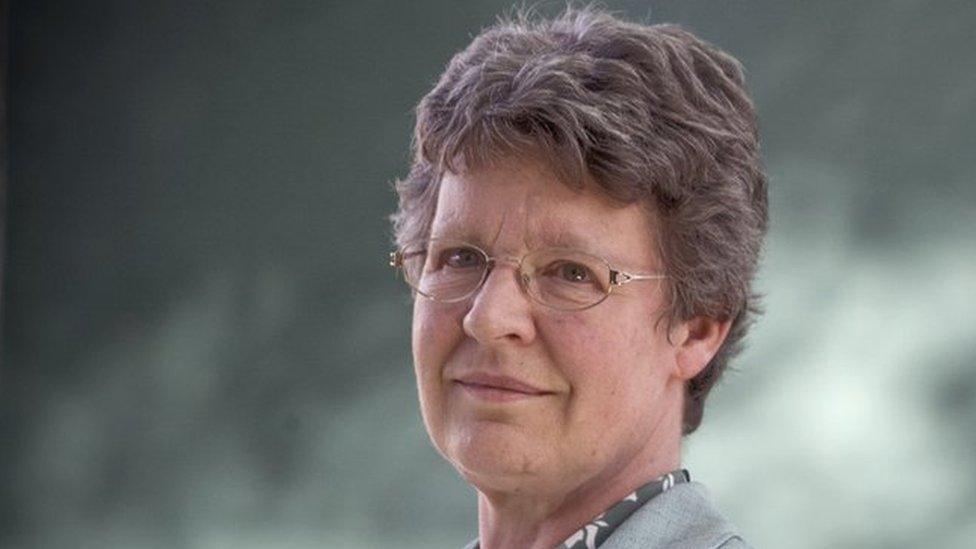Evolution: Scientist Alfred Russel Wallace's medals auctioned
- Published
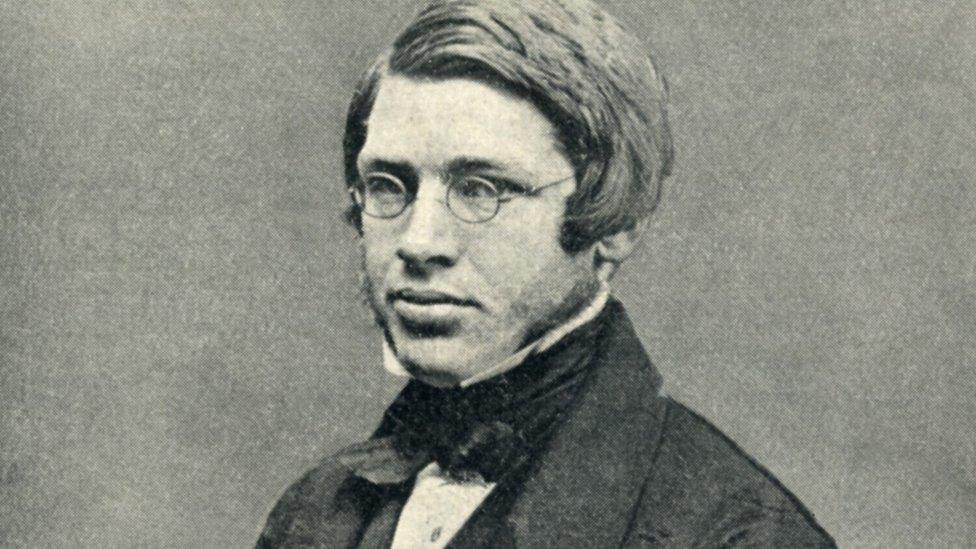
Wallace was born into a comfortable yet by no means wealthy Monmouthshire family
The sale of five medals awarded to the naturalist Alfred Russel Wallace has prompted a fundraising drive to buy them for the nation.
Wallace formulated his theory of evolution by natural selection independently of Charles Darwin.
The Alfred Russel Wallace Memorial Fund said it would also be willing to share the cost with anyone who was happy to loan the medal for public display.
The medals will be sold on 20 July with the rarest one valued at £15,000.
Fund chairman, Dr George Beccaloni, said: "We're not trying to raise money, rather we're trying to create awareness of the auction, to flag it up to anyone who feels as passionately about Wallace as we do.
"If there was someone who had both the money and inclination to purchase one or all of them with a view to loaning them back to a museum or scientific organisation in the UK, we'd only be too happy to help with the arrangements."
Dr Beccaloni says he would encourage potential bidders to contact him before the auction this Wednesday, so that he could co-ordinate cost sharing and to prevent people who share the same ambition from bidding against each other, thus unnecessarily raising the price.
Wallace was an unlikely hero of science.
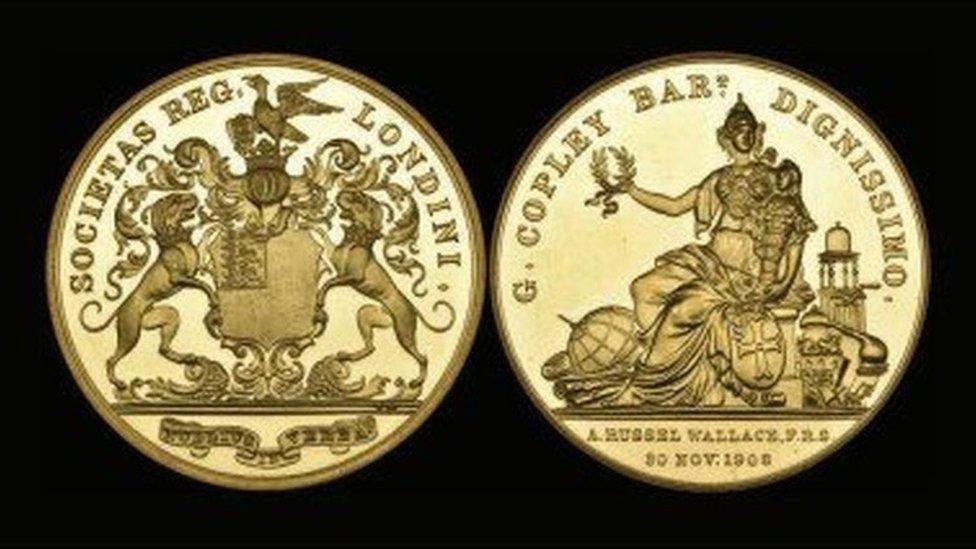
The Copley Medal is the highest award of the Royal Society
Born into a comfortable yet by no-means wealthy family in Usk in the modern-day county of Monmouthshire, his father's disastrous business investments meant a young Wallace was forced to leave education at 14 and train as a land surveyor.
In his 20s he scraped together every penny to travel to the Amazon where he made his name, then secured a grant from the Royal Geographic Society to visit the Malayan Archipelago, (mostly modern-day Indonesia).
"There was an enormous and lucrative Victorian market in exotic specimens and wildlife from the Far East and Wallace saw a chance in it to break free from the problems in which his father had landed him," said Dr Beccaloni.
"However, once there, Wallace made incredible observations on how creatures adapt to their surroundings, which began to formulate a revolutionary idea in his mind."
He asked himself: "How had God created such unique creatures, perfectly designed for their environment?
"Wasn't it more likely that the apes with the strongest arms had been most successful in breeding, meaning that the dominant genetic traits were persisted throughout the species?"
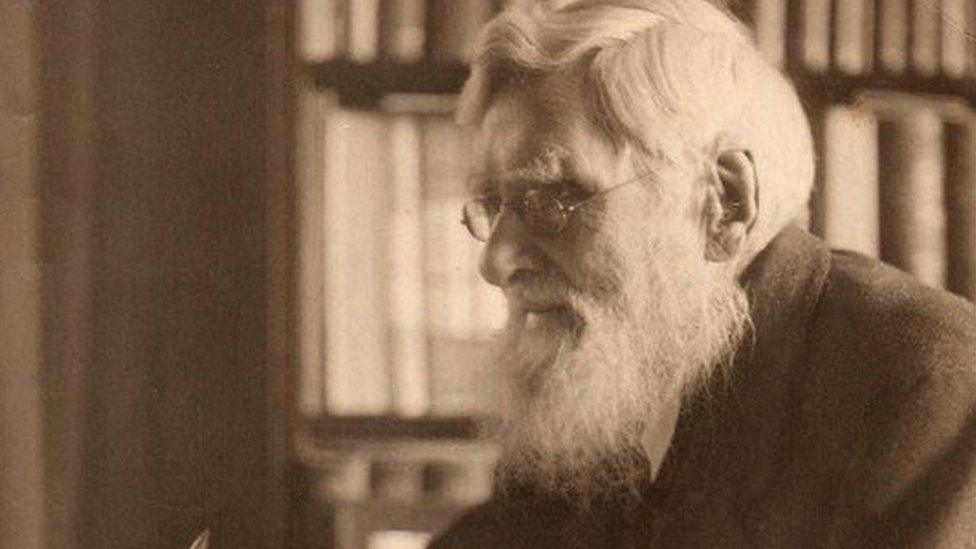
Alfred Wallace figured out the survival of the fittest during a bout of malaria
He found further evidence when he came across the Flying Frog, which would later be named in his honour.
By 1856 Wallace had published his Sarawak Law Essay, stating that he knew evolution existed in the natural world, but he had not yet discovered the mechanism.
A joint paper published by the Linnean Society in 1858 meant Wallace's essay stimulated Darwin into writing On the Origin of Species.
Meanwhile, a hallucinogenic bout of malaria revealed the missing pieces to Wallace: Survival of the fittest meant that those who could not fight off a hardship such as malaria died out, while those who lasted would go on to share their stronger genes with future generations.
While Darwin's greater wealth and better connections may have played a part in him being more widely recognised for the theory of evolution than Wallace, how then did Wallace come to be honoured with five medals for the discovery, while Darwin did not receive a single one?
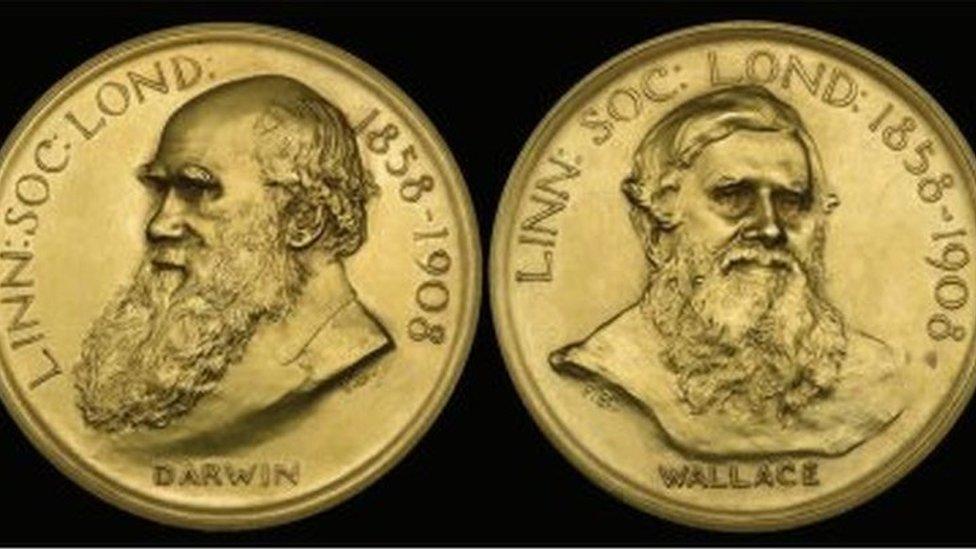
The Linnean Society of London, Darwin-Wallace Medal, in gold is valued at £10,000 to £15,000
Dr Beccaloni believes, somewhat ironically, it all came down to one of the key principles of evolution - survival of the fittest. Wallace simply lived longer.
"Darwin died in 1882, while Wallace lived on until 1913. Only one of Wallace's medals was received in Darwin's lifetime," he said.
"Their ideas were so shocking that it took several decades for them to overcome religious prejudice and to be replicated by other scientists. By the time evolution became widely accepted, Darwin was long gone."
The auction will be held at Morton & Eden in London on 20 July.
- Published6 November 2021
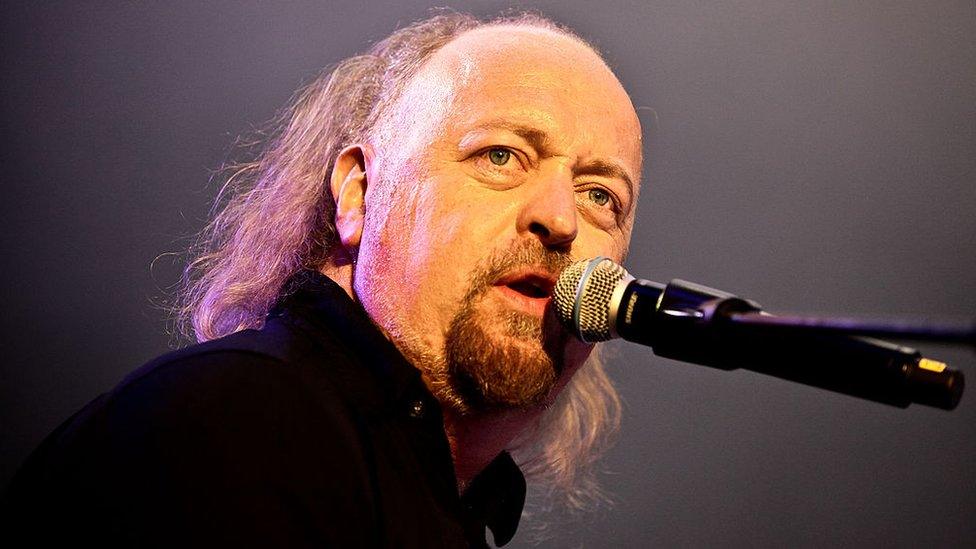
- Published22 October 2013
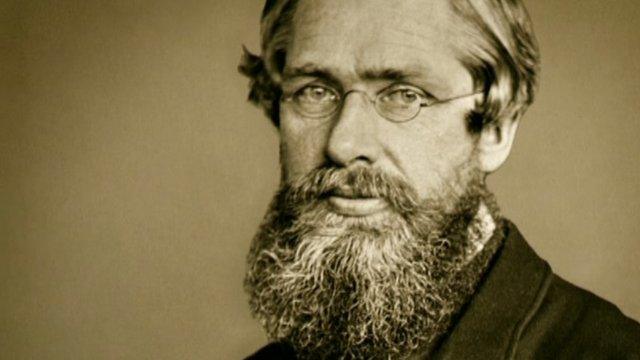
- Published27 September 2012
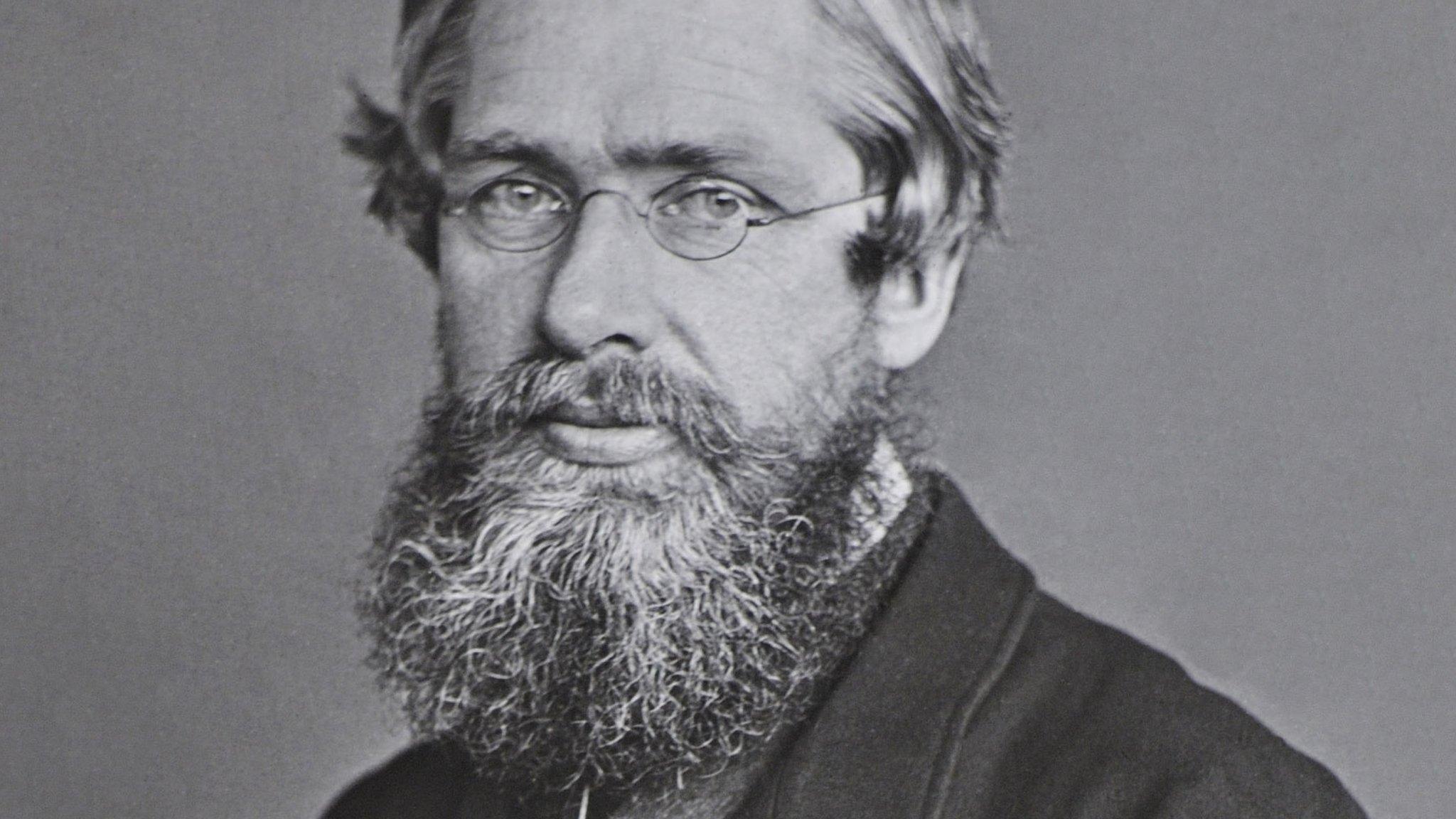
- Published1 October 2012
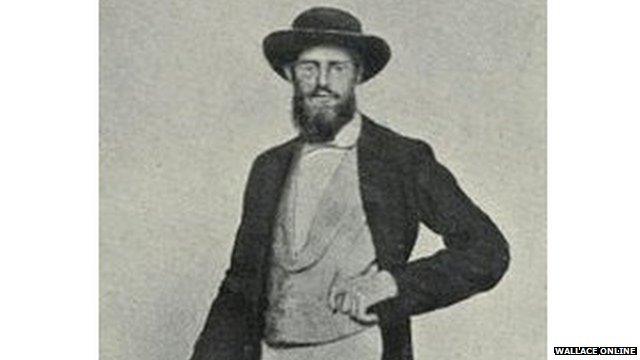
- Published6 September 2018
